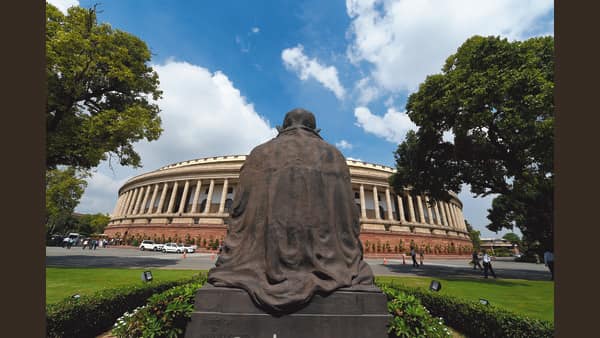New Delhi: A reform bill which proposes to decriminalize a raft of provisions in order to make it easier to conduct business in India is expected to be tabled during the current session of Parliament resuming on 13 March, a government official aware of the development said.
The Jan Vishwas bill which proposes to decriminalize provisions under 42 Acts was introduced in Parliament in December last year, but was referred to a joint committee for further scrutiny.
“The joint committee has done six readings already and we expect the bill to be tabled during the ongoing parliament session. It was referred to the joint committee because never before has there been a bill seeking to decriminalize so many sections in one go. So, to have a closer look at the bill could be one of reasons it was referred to the joint committee,” a Department for Promotion of Industry and Internal Trade (DPIIT) official said.
As an example of how the bill can help businesses flourish, the official said it aims to scrap the system of fines, which can be time-consuming, and replace it with penalties.
“Fines are imposed by a judicial mechanism. That means you have to go to court. If we are removing it [fines] and replacing it with a penalty, then it is effective under an administrative mechanism. So, you unclog the courts in a big way. If the penal authority is within the system, it will help the businesses,” the official said.
Moreover, a large number of offences are proposed to be allowed for ‘compounding’ — where an offender can pay a penalty to avoid being imprisoned — most notably the Motor Vehicles Act, 1988.
“For instance, when there is an e-challan and a notice comes to your house…. If you got your car registered by giving false information, that has been made compoundable. Earlier you could be jailed for it,” the official added.
The bill seeks to decriminalize 183 provisions, including those in half-a-dozen colonial-era laws such as the Indian Post Office Act, 1898, where you could be jailed for not using correct stamps, and Boilers Act, 1923, which lays down rules for the operation of steam boilers, crucial for power plants, sugar, textile, feed, auto rice mills and the pharmaceutical industry.
Jail provision for up to two years is proposed to be dropped in three sections of the Boilers Act.
The 42 Acts involved in the reform process span 19 ministries, including environment, finance, road transport and highways, posts, electronics and information technology, food production and distribution, financial services and agriculture.
The Bill proposes a 10% increase in the minimum amount of penalty every three years from the enactment of the proposed Bill.
“A web of outdated rules and regulations causes trust deficit. It has been the endeavour of the government to achieve the principle of ‘Minimum Government, Maximum Governance’, redefining the regulatory landscape of the country under the Ease of Living and Ease of Doing Business reforms…“ commerce and industry minister Piyushg Goyal said in the ‘statement and objectives’ of the bill.
According to union finance minister Nirmala Sitharaman, over 34,000 provisions have already been decriminalized.
Download The Mint News App to get Daily Market Updates.



